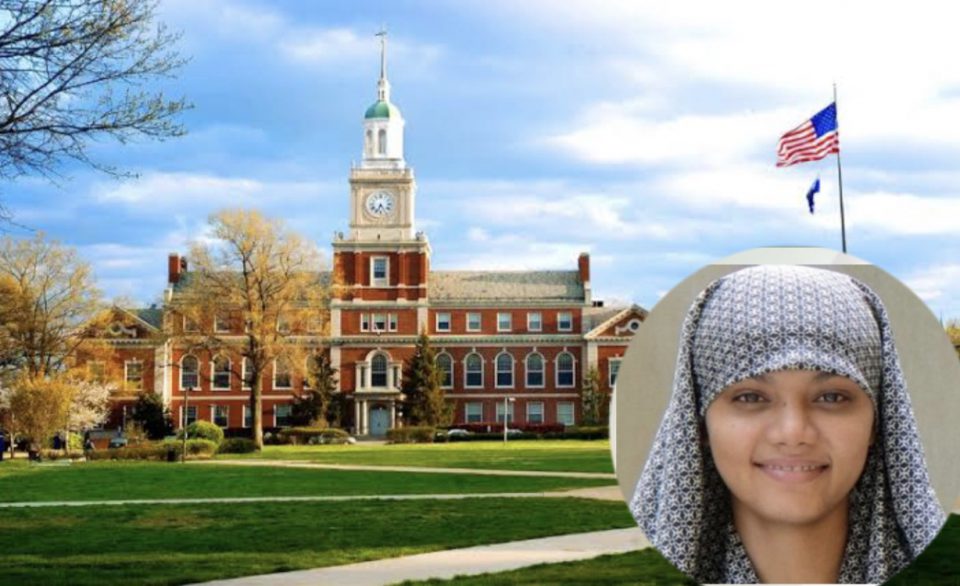Anum Fatima, a resident of Ibrahim Goth slum located near Karachi’s Steel Town, made history as she got the opportunity to study at Harvard Business School as part of a student exchange program.
Anum’s father is employed as a driver and her mother works as a maid. The slum school she attended is run by The Citizen’s Foundation (TCF), a private foundation. From 5 schools in Karachi in 1995, TCF has expanded to 910 purpose-built schools with 126,000 students in 97 towns and cities across Pakistan.
 |
| Institute of Business Management (IoBM) Karachi |
After graduating from the TCF school located near her slum, Fatima completed her BBA in Human Resource from College of Business Management (CBM) of the Institute of Business Management (Iobm), a private Business School in Karachi.
Anum has broken many stereotypes about Pakistani women, particularly poor women, by studying business management at top business schools in Pakistan and the United States. She told a news reporter that when she broke the news to her father, he did not know what Harvard was. “When he went to work that day, he asked his boss, who told him what a tremendous achievement it was,” she said.
Although it’s the first time that a TCF grad went to Harvard, the Foundation schools have had many success stories of its graduates from poor families who have gone on to attend professional schools to become doctors, engineers, lawyers, teachers and business executives.
New York Times’ Sabrina Tavernise described the rise of Pakistan’s middle class in a story from Pakistani town of Muzaffargarh in the following words:
For years, feudal lords reigned supreme, serving as the police, the judge and the political leader. Plantations had jails, and political seats were practically owned by families.
Instead of midwifing democracy, these aristocrats obstructed it, ignoring the needs of rural Pakistanis, half of whom are still landless and desperately poor more than 60 years after Pakistan became a state.
But changes began to erode the aristocrats’ power. Cities sprouted, with jobs in construction and industry. Large-scale farms eclipsed old-fashioned plantations. Vast hereditary lands splintered among generations of sons, and many aristocratic families left the country for cities, living beyond their means off sales of their remaining lands. Mobile labor has also reduced dependence on aristocratic families.
In Punjab, the country’s most populous province, and its most economically advanced, the number of national lawmakers from feudal families shrank to 25 percent in 2008 from 42 percent in 1970, according to a count conducted by Mubashir Hassan, a former finance minister, and The NewYork Times.
“Feudals are a dying breed,” said S. Akbar Zaidi, a Karachi-based fellow with the Carnegie Foundation. “They have no power outside the walls of their castles.”
GeoTV illustrated this welcoming phenomenon of upward social mobility in Pakistan with a series of motivational “Zara Sochiey” videos on young men and women who have risen from humble origins to achieve significant successes in recent years. Each individual portrayed in the series has overcome adversity and focused on acquiring education as a ticket to improve his or her economic and social situation.
On the contrary, it is known to be a fact that Pakistan has been increasing enrollment of students in schools at a faster rate since 1990 than India, according to data compiled and reported by Harvard University researchers Robert Barro and Jhong-Wa Lee.



